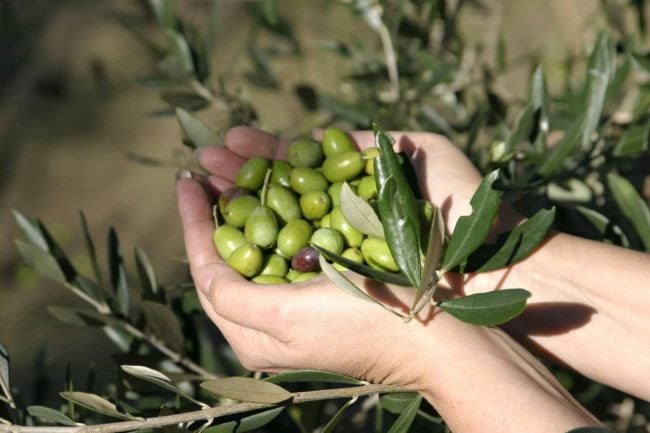New study reveals plant-based diet including polyphenol rich extra virgin olive oil linked to reduced stroke risk
Updated 27th January 2023

SUMMARY:
- Extra virgin olive oil has been linked to a wide range of health benefits including stroke prevention.
- Studies have shown that regular, moderate consumption of extra virgin olive oil can reduce an individual’s risk of stroke by up to 20%.
- The polyphenols contained in extra virgin olive oil play a key role in reducing blood pressure levels and inflammation.
- The heart-healthy monounsaturated fat found in extra virgin olive oil can also play a key role in stroke prevention.
CONTENTS:
- Can Extra Virgin Olive Oil Help Reduce The Risk Of Stroke?
- Polyphenols In Extra Virgin Olive Oil
- Plant-Based Diet Has ‘Significant Impact On The Risk Of Stroke’
- Further Evidence That Extra Virgin Olive Oil Reduces Risk Of Stroke
- Is A Mediterranean Diet The Best Plant-Based Diet To Choose?
- Extra Virgin Olive Oil And The Cardiovascular System
Can Extra Virgin Olive Oil Help Reduce The Risk Of Stroke?
Extra virgin olive oil has been linked to countless health benefits, stroke prevention among them. Studies have revealed that regular, moderate consumption of extra virgin olive oil can reduce an individual’s risk of stroke by up to 20%. This is likely due to the polyphenols contained in the oil that can benefit blood pressure levels and inflammation. In addition, the heart-healthy monounsaturated fat found in extra virgin olive oil can play a key role in stroke prevention as well.
While stroke is a serious health issue, recent evidence shows that using extra virgin olive oil as part of a balanced diet can help to reduce the risk of stroke. This finding comes as a result of further research into the properties of extra virgin olive oil’s polyphenols and their positive effects in reducing stroke-related risks. By consuming food cooked in extra virgin olive oil on a regular basis, it is suggested that you can benefit from improved cardiovascular health and reduced stroke risk due to the presence of these powerful polyphenols.
Extra virgin olive oil can be consumed on its own and added to all sorts of meals, making it a tasty, beneficial addition to any healthy diet. Many health practitioners are now putting more emphasis on the importance of a healthy diet, including extra virgin olive oil for stroke prevention.
A new study has revealed links between a ‘healthy’ plant-based diet, including foods containing polyphenols, flavonoids and dietary fibre and a lowered risk of stroke. The findings in the research, published online in Neurology, indicated that plant-based foods are rich in nutrients, such as polyphenols, that may reduce the risk for cardiovascular disease. Scientists have indicated that ingestion of these health-giving nutrients could be the mechanism through which a plant-based diet reduces the risk for stroke.
Polyphenols In Extra Virgin Olive Oil
Polyphenols, which are present in abundance in the best extra virgin olive oils, such as Morocco Gold, are known to have multiple health-giving properties.
Polyphenols are known for their anti-inflammatory and antioxidant properties. In vitro trials and an increasing number of human trials are studying the potential benefits of high phenolic extra virgin olive oil in alleviating symptoms and potential therapeutic effect for Alzheimer’s, Rheumatoid Arthritis, Type II Diabetes, Leukemia and many cancers as well as other autoimmune and neurodegenerative diseases that are prevalent in today’s culture.
There is no shortage of research suggesting that plant-based diets reduce the risk for cardiovascular disease, but few studies have examined the effect of these diets – in which extra virgin olive oil can form a stable part – on the risk of stroke.
Plant-Based Diet Has ‘Significant Impact On The Risk Of Stroke’
However, this most recent study (looking at data from over 200,000 men and women), found that maintaining a healthy plant-based diet is associated with a lower risk for both total stroke and ischemic stroke. According to study co-author Megu Baden, PhD, in the Department of Nutrition at the Harvard T.H. Chan School of Public Health:
“We found that those following this [plant-based] diet had 10% lower stroke risk. This was especially true when we take the quality of food into consideration.”
As explained in Medscape by Erica Camargo Faye, MD, PhD, a stroke neurologist at the Massachusetts General Hospital and an instructor in neurology at Harvard Medical School, Boston, Massachusetts:
“There is a large body of literature supporting the concept that the Mediterranean diet, DASH diet, and diets rich in fruits and vegetables reduce the risk of stroke,” said Faye. “This study adds to these findings, demonstrating that the quality of plant-based diets also has a significant impact on the risk of stroke.”
Further Evidence That Extra Virgin Olive Oil Reduces Risk Of Stroke
A previous study carried out in France suggests that consuming olive oil may help prevent a stroke in older people. The research was published in the online issue of Neurology®, the medical journal of the American Academy of Neurology.
“Our research suggests that a new set of dietary recommendations should be issued to prevent stroke in people 65 and older,” said study author Cécilia Samieri, PhD, with the University of Bordeaux and the National Institute of Health and Medical Research (INSERM) in Bordeaux, France. “Stroke is so common in older people and olive oil would be an inexpensive and easy way to help prevent it.”
For the study, researchers looked at the medical records of 7,625 people ages 65 and older from three cities in France: Bordeaux, Dijon and Montpellier. Participants had no history of stroke. Olive oil consumption was categorized as “no use,” “moderate use” such as using olive oil in cooking or as dressing or with bread, and “intensive use,” which included using olive oil for both cooking and as dressing or with bread. Samieri said the study participants mainly used extra virgin olive oil, as that is 98 percent of what is available in France.
After a little over five years, there were 148 strokes.
After considering diet, physical activity, body mass index and other risk factors for stroke, the study found that those who regularly used olive oil for both cooking and as dressing had a 41 percent lower risk of stroke compared to those who never used olive oil in their diet (1.5 percent in six years compared to 2.6 percent).
Olive oil has been associated with potentially protective effects against many cardiovascular risk factors, such as diabetes, high blood pressure, high cholesterol and obesity.
Is A Mediterranean Diet The Best Plant-Based Diet To Choose?

If you are convinced by all this hard-hitting science to convert or shift closer to a plant-based diet, the Mediterranean Diet is one of the best choices you could make. Abundant in quality plant sources, including fish and extra virgin olive oil, this study adds weight to previous research which found it is beneficial for lowering the risk of ischemic stroke and heart disease.
At Morocco Gold, we are proud of the quality and provenance of our extra virgin olive oil which helps to ensure that it is packed full of those special nutrients that are required to reduce your risk of cardiovascular disease and stroke.
Extra Virgin Olive Oil And The Cardiovascular System
Lowering your risk of cardiovascular problems is an area upon which several recent studies on extra virgin olive oil have focused. Chronic inflammation is a risk factor for many types of cardiovascular disease, and extra virgin olive oil has well-documented anti-inflammatory properties.
One place we don’t want excessive ongoing inflammation is within our blood vessels. Our blood supply is just too important for maintaining the health of all our body systems, and it cannot effective support our body systems when compromised with ongoing inflammation. Given this relationship, it’s not surprising to see cardiovascular benefits of extra virgin olive oil rising to the top of the health benefits provided by this remarkable oil.
From a variety of different research perspectives we know that daily intake of extra virgin olive oil in amounts as low as one tablespoon per day reduces inflammatory processes within our blood vessels. By reducing these processes, extra virgin olive oil also reduces our risk of inflammation-related cardiovascular diseases like atherosclerosis.
Yet anti-inflammatory benefits are not the only cardiovascular benefits provided by extra virgin olive oil. Two other broad types of heart-related benefits are well documented for this oil. The first type is lessened risk of forming unwanted blood clots. While blood clotting is a natural and healthy process required for the healing of wounds and prevention of excessive bleeding, clotting in the arteries can ultimately result in a heart attack or stroke.
One risk factor for unwanted clotting in our arteries is excessive clumping together of our platelet blood cells. This clumping process is also called “aggregation.” Regular incorporation of extra virgin olive oil into a meal plan has been shown to lessen the risk of this excessive aggregation, and the reason that researchers refer to extra virgin olive oil as an “anti-aggregatory” oil.
The other broad area of cardiovascular benefits involves improved levels of circulating fats in our bloodstream, as well as protection of those fats from oxygen-related damage. Decreased levels of total cholesterol and LDL cholesterol following consumption of extra virgin olive oil are findings are the vast majority of studies that have analysed this relationship.
Yet equally important, the cholesterol molecules that remain in our blood also appear to be better protected from oxygen-related damage (oxidation). Since fats and cholesterol belong to a broader technical category called “lipids,” damage to the fats and cholesterol in our blood stream is typically referred to as “lipid peroxidation.” And it is precisely this lipid peroxidation process that gets reduced through incorporation of extra virgin olive oil into a meal plan.
